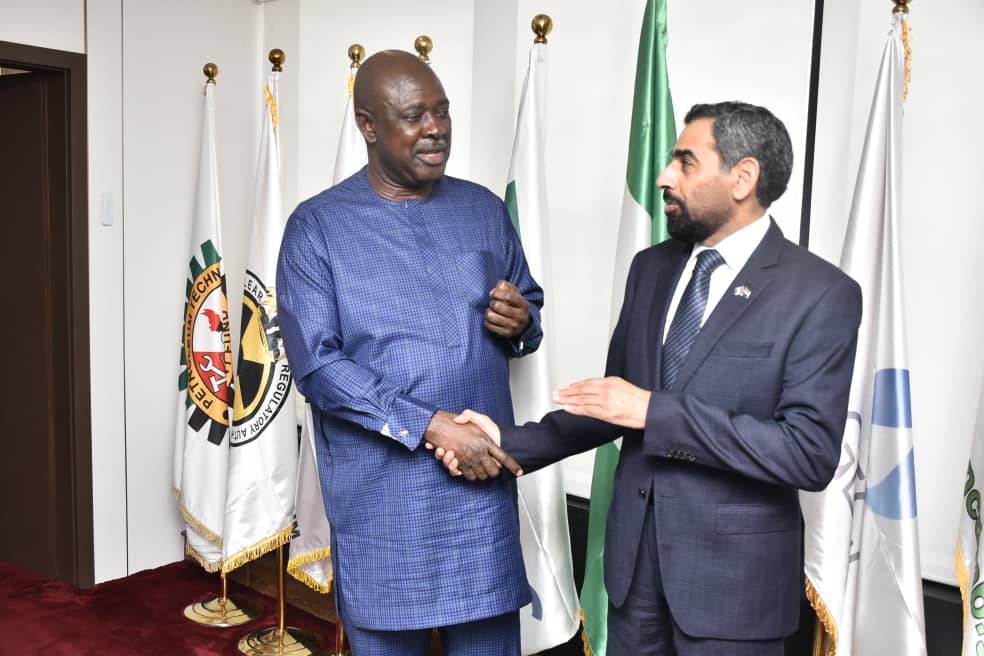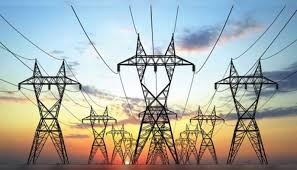


FG, UAE plan new oil exploration deal
The Federal Government, on Monday, urged the United Arab Emirates to invest in the renewal and reconstruction of the more than 50-year-old oil pipelines in Nigeria, stressing that the facilities had outlived their lifespans.
It also stated that Nigeria and the UAE were on the same page concerning oil exploration as crude oil drilling would not be abandoned despite calls for its abandonment in some quarters.
The Minister of State for Petroleum (Oil), Heineken Lokpobiri, disclosed this in Abuja while playing host to a delegation from the UAE led by the United Arab Emirates Ambassador to Nigeria, Salem Al Shamsi.
Lokpobiri said, “This country has enormous investment opportunities, our pipelines need renewal. They have been there for over 50 years since Nigeria found oil in commercial quantities in 1956/1958.
“And from then till now it is almost 70 years and most of those pipelines were built around that time and have already outlived their lifespans. And even if you can produce, you need to evacuate to the terminals where you would export.
“So it is an opportunity that we are looking up to potential investors from the UAE to come and invest here and recover their money through those investments.”
The minister told his guests that the investment models would be very attractive.
“Part of what we are proposing is that if you come and invest you will get your money, for as you transport the crude you’ll take it. Proportionately you’ll recover your investments, for any barrel of crude you transport through your pipes, you have to recover your investment by placing mutually agreeable charges,” he stated.
Lokpobiri further stated that Nigeria has over 208 trillion cubic feet of gas, adding that “we in Nigeria know that these records are over 20 years. We can double or triple our gas reserves in Nigeria. So Nigeria is more of a gas country than even crude.”
He said, “And even our crude reserves, I’m very confident that the 37 billion barrels we are talking about are also records of about 20 years. So even in terms of crude deposits in volumes, we believe that we should be doing much more than that.
“That is why when this government came on board, part of what was said was that we have to resume our drilling campaigns to ensure that we make more discoveries and sustain the momentum, and we are achieving that by liberalising the processes.”
He said the government was trying to eliminate the bureaucracy which had been one of the reasons why some of these investments were delayed.
“Of course, you know that following the introduction of the Petroleum Industry Act, the NNPC is now run as a national oil company that is to make profit for shareholders and Nigerians.
“So we want to assure the UAE that Nigeria is open for investments and we are committed to deepening our very strategic relationship with the UAE. I am happy that the visa issue has been addressed,” the Minister stated.
Lokpobiri told the ambassador that Nigeria and the UAE would continue to leverage their membership of OPEC to work as partners, adding that the Nigerian market is huge for investments, whether in LPG, CNG or the entire value chain in the oil and gas sector.
He said Nigeria lacks the amount of dollars required for suitable investments in the oil sector, but noted that the UAE has billions of dollars that could be invested in Nigeria and recovered by the investors.



